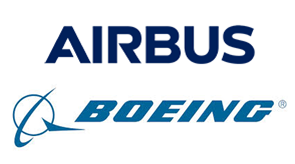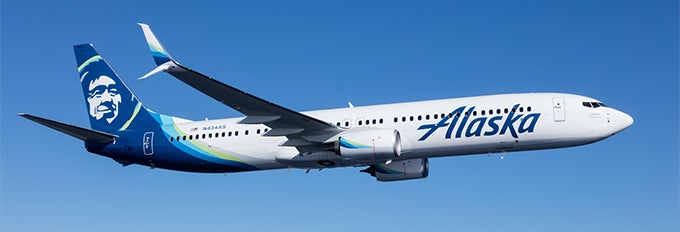Leeham News and Analysis
There's more to real news than a news release.
Before handing $60bn to Boeing, consider this
By Scott Hamilton
Commentary
March 20, 2020, © Leeham News: Before the Trump Administration hands $60bn over to Boeing for its own purposes and to serve as a conduit to aid the supply chain, there are just one or two issues to address.
Why bailouts make sense under these circumstances
By Scott Hamilton
Commentary
March 18, 2020, © Leeham News: The Federal government is preparing a bailout, said to be more than $1 trillion, to pump into the US economy.
Airlines want $50bn. Boeing wants $60bn for the aerospace industry. It’s unclear how much is for Boeing and how much is for industry.
Opposition for the airlines and Boeing was quick to emerge. The objection: how much each spent in recent years on shareholder buybacks.
The bailout package goes across the US economy and includes direct cash grants to individuals. In keeping with LNA’s business, I focus in the column only on aviation.
Coronavirus impact to Boeing still unfolding
By Judson Rollins
Subscription Required
March 16, 2020, © Leeham News: Boeing stock sold off 28% last week on news that the company would draw down the remainder of a $13.8bn loan it arranged in February to cover ongoing expenses related to the 737 MAX.
In addition to MAX-related charges, the company is also hoping to close its joint venture with Embraer and has looming debt maturities later this year. But the company’s airplane sales prospects are an increasing source of worry for investors.
The coronavirus and its impacts – which are still unfolding – put up significant obstacles to Boeing’s recovery, even as it hopes to finally see the MAX recertified within a few months. Read more
“We’re sick and tired of new technologies:” Avolon CEO
Subscription Required
Introduction
By Scott Hamilton
March 16, 2020, © Leeham News: “I can tell you from our perspective, we’re kind of sick and tired of new, new technology. It’s not proven to be the home run.”
This blunt assessment comes from the chief executive officer of the big aircraft lessor, Avolon.
Domhnal Slattery, the CEO, was giving his critique of whether Boeing should launch a new airplane once the 737 MAX crisis is over.
Boeing was on a path to decide whether to launch the New Midmarket Airplane when the MAX was grounded one year ago this month.
Airbus was waiting for Boeing to move before deciding how to respond.
Summary
- Airbus and Boeing should “stick to their knitting.”
- Focus on incremental improvements for now.
- 2030s to 2050s will be the next big advance in technologies.
Grounding takes toll on Boeing 737 MAX investment desires
By Scott Hamilton
March 2, 2020, © Leeham News, Austin (TX): A poll of people attending a major aerospace conference here today illustrates the hit Boeing took from the trouble with the 737 MAX.
 The audience was asked to rate the Airbus A320neo against the 737-8 MAX for financier/lessor risk-reward investment.
The audience was asked to rate the Airbus A320neo against the 737-8 MAX for financier/lessor risk-reward investment.
The A320neo was rated favorably by 70% of the those voting. The MAX 8 was rated favorably by just 19%. The remainder rated the two planes equally.
In the era of the A320ceo and 737-800, the Boeing tended to have an edge by a few percentage points in this largely American audience. Audiences at similar European conference tended to tilt toward the A320ceo in past surveys.
In the same polling at this year’s conference 75% of those voting believe Airbus has the better narrow-body product line. Only 19% chose Boeing.
Why was the 737-8 losing market to the A320neo before the MAX crisis?
By Bjorn Fehrm
Subscription Required
Introduction
February 27, 2020, © Leeham News: While we wait on the Boeing 737-8 to get back in the air, we take a look at how this best seller in the 737 series compares with its direct rival, the Airbus A320neo.
The 737-800 and its follow on, the 737-8, have been the most popular single-aisles in Boeing’s lineup for decades. The 737-800 sold more units than the A320. But when both got re-engined, this changed. The A320neo is now outselling the 737-8.
We look into why.
Summary:
- The trend where the A320neo is outselling the 737-8 started well before the MAX crisis. Is the root cause better airframe performance?
- We find the cause to be another. The difference is not about a change in relative airframe performance between the two.
Europe to Boeing: Not so fast on your WTO move; tariffs still likely
By Scott Hamilton
Feb. 24, 2020, © Leeham News: Not so fast, Europe says about Boeing’s claim it is curing illegal tax breaks from Washington State.
The World Trade Organization has to agree to Boeing’s interpretation. This will take at least a year. In the meantime, be prepared for tariffs to be levied on Boeing airplanes by this summer, just as the company hopes the 737 MAX is recertified and deliveries can resume.
Boeing must get the WTO’s approval that the move to suspend the tax breaks will bring the US and Boeing into compliance with a ruling they are illegal.
This process could take a year, said a person familiar with the process. He spoke on the condition of anonymity in order to speak freely.
In the meantime, tariffs that have been authorized for the European Union to impose on Boeing, and other US products, may take effect once the amount is approved. This decision is due in May or June.
Why the A321XLR makes sense for Alaska Airlines
By Scott Hamilton
Feb. 23, 2020, © Leeham News: Alaska Airlines last week said it will place an order, perhaps this year, for 200 aircraft for delivery over the next decade.
The carrier exclusively operated Boeing 737s until its acquisition of Virgin America. Officials repeatedly put off a decision whether to return to an all-Boeing fleet.
Virgin leases for Airbus A319s/320s extend to 2025. The ex-Virgin fleet numbers 61. Leases for Airbus A321s extend to late this decade.
Alaska has 30 A320neos on order from the Virgin merger. However, cancellation rights have small penalties.
The carrier ordered 37 737 MAX 9s. Three were built last year but are stored in the grounding. Seven more are due this year.
Alaska plans to aggressively grow in the next 10 years.
Here’s why converting the 30 Virgin orders to A321neos makes sense.
Boeing finds debris left in new 737 MAXes, now in storage
By Scott Hamilton
Exclusive
Feb. 18, 2020, © Leeham News: Boeing recently discovered some of its stored 737 MAXes have foreign objects in the fuel tanks.
 The entire fleet of 400+ newly produced but undelivered MAXes is being inspected.
The entire fleet of 400+ newly produced but undelivered MAXes is being inspected.
Foreign objects, called foreign object debris (FOD) in aviation parlance, consist of tools or rags. FOD has been found in the fuel tanks of some MAXes. MAXes are stored at four locations in Washington State and in San Antonio (TX).
It’s unlikely that the FOD inspections will delay recertification or testing of the MAX.
Pontifications: In chaos there is opportunity for Boeing during MAX grounding
Feb. 17, 2020, © Leeham News: Boeing executives said that while the 737 MAX production is suspended, efficiencies are being implemented on the assembly lines.
At a Cowen & Co. conference last week, EVP and CFO Greg Smith outlined some of the efficiencies that are being put in place.
But another area that could be improved, not addressed by Smith, while the lines are shut down is supply chain tracking. This has huge ramifications for cost savings and streamlining. It’s part of the business plan for the next new airplane, whatever this is.
This process is called ERP, or Enterprise Resource Planning. Boeing is transitioning to a more advanced method, called SAP, or Systems Applications Projects.
Boeing Australia and Boeing Global Services have made the transition. But Boeing Commercial Airplanes’ transition is stalled due to middle management inertia, said several people who attended the Pacific Northwest Aerospace Alliance annual conference Feb. 4-6.
Boeing should use the production halt and slow ramp up to implement SAP, they said.




